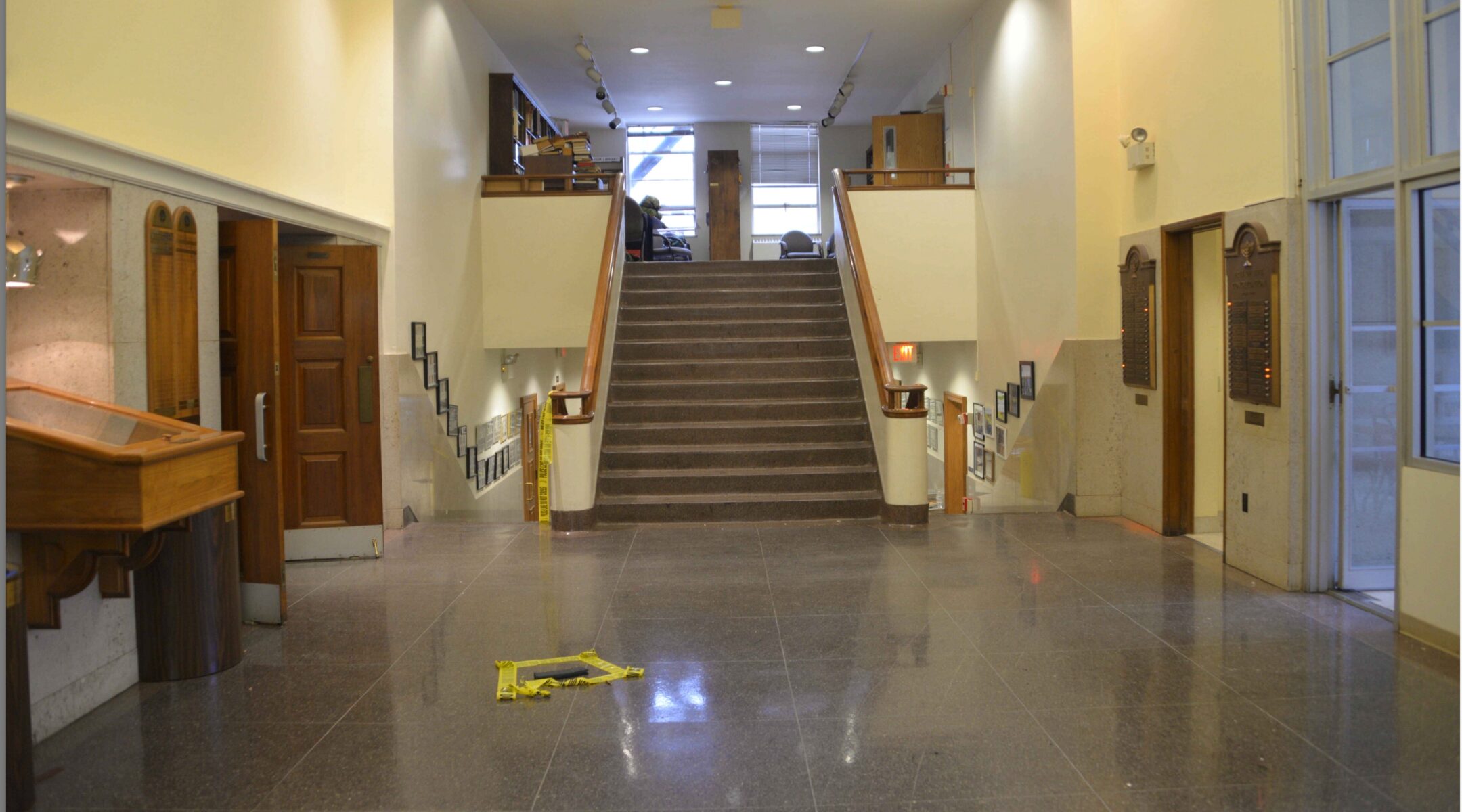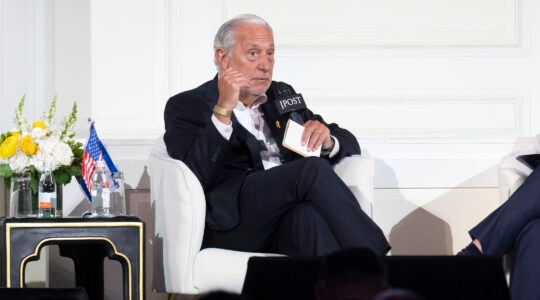PITTSBURGH (JTA) — To try to save his client from the death penalty, a lawyer defending the Pittsburgh synagogue shooter spent hours this week pressing a prominent psychiatrist on a question that has occupied many over time: Is hating Jews a manifestation of mental illness?
Robert Bowers was convicted last month of committing the deadliest attack on Jews in U.S. history when he attacked the Tree of Life synagogue on Oct. 27, 2018. His lawyers essentially conceded the charges, choosing instead to focus on trying to save him from the death penalty.
One way to do that would be to persuade jurors that the gunman’s intentions were clouded by mental illness. Such a determination by even a single juror would close the door to execution and bring to an immediate end to a trial that has at times been a vector of American Jewish fear and identity.
The government, on the other hand, is pressing for the death penalty and making the case that Bowers was animated by hate, not delusions, when he attacked the synagogue. In recent days, it called a star witness, Dr. Park Dietz, a forensic psychiatrist who for decades has been a go-to expert witness in marquee trials.
Starting last Thursday, Dietz contended that Bowers is a garden-variety antisemite, and not suffering from schizophrenia, as the defense has argued.
On Tuesday, Michael Burt, one of the defense lawyers, sought to poke holes in Dietz’s argument that Bowers’ murderous antisemitism is consistent with rational — if evil — behavior, and instead sought to depict Bowers’ hatred of Jews as a manifestation of mental illness.
He reminded Dietz that decades ago, the psychiatrist assessed a man who believed plastic surgeons were committing genocide against Aryans by making Aryan and non-Aryan noses indistinguishable.
“You concluded in that case that that client suffered from a delusional disorder and as a result you thought he was insane,” Burt said. “Conspiracy theories and delusions are not exclusive; they can interact?” he asked.
Dietz agreed that conspiracy theories and delusions were not necessarily mutually exclusive, but that there had to be clues that an antisemite was suffering delusions in addition to being susceptible to antisemitic tropes.
“The difference is the presence or absence of a mental illness,” Dietz said. “The uniqueness of the belief system, its idiosyncratic nature, its personal nature are all clues that it springs from the mind … and not the external group.”
Bowers did not suffer those idiosyncratic characteristics, Dietz said. “He had no delusions based on any reasonable definition of delusions,” he said. “There’s a consensus in psychiatry that if one’s weirdo beliefs are shared by a large group, that’s not a delusion.”
Dietz, a forensic psychiatrist at UCLA’s medical school, has evaluated defendants including John Hinckley, who attempted to kill President Ronald Reagan; mass murderer Jeffrey Dahmer; and Unabomber Ted Kaczynski, among many others.
Burt kept Dietz on the stand for the most part of Monday and Tuesday. The defense lawyer veered between lengthy technical readings about the Diagnostic and Statistical Manual of Mental Disorders, known as the DSM-5-TR, and attempts to undermine Dietz’s credibility. Returning repeatedly to the psychiatrist’s IMDB entries, he challenged Dietz’s consultation on hundreds of episodes of “Law and Order” and his participation in true-crime documentaries, some with sensationalist titles.
But the most salient exchanges came as Burt interrogated Dietz about whether the shooter’s antisemitic beliefs reflected mental illness. The gunman said he targeted the Pittsburgh synagogue in part because one of its congregations was partnering with HIAS, the Jewish refugee aid group. In a social media post, Bowers said HIAS “likes to bring invaders in that kill our people,” in an articulation of the antisemitic “Great Replacement” conspiracy theory.
Dietz, who interviewed the gunman for 15 hours in May, testified on Monday that the defendant’s thinking could be traced to a number of late 20th-century writings that have underpinned white supremacist ideology, including the “White Genocide Manifesto” authored in 1985 by David Lane — the leader of a white supremacist group called The Order who killed Jewish radio host Alan Berg.
Burt asked Dietz whether there are circumstances in which antisemitic falsehoods can double as delusions. “Can you have a delusion that relates to false beliefs that relate to antisemitism?” he said.
“You could, but there has to be something idiosyncratic about it,” Dietz said. “The belief that Jews are the children of Satan has been idiomatic of the Christian identity movement since the 18th century. This is a lie that has been conveyed from generation to generation, that has been conveyed for centuries and is core to the view of some white supremacists.”
The defense argument that antisemitism signals mental illness has precedents. In the 1940s, Ezra Pound’s lawyer got the poet to dodge a capital treason trial by persuading U.S. authorities that Pound should be institutionalized, in part by implicating mental illness for the virulent antisemitism that spurred him to propagandize on behalf of the Axis. (Pound spent his 13 years at St. Elizabeths Hospital in Washington, D.C., befriending and encouraging American racists and fascists.)
Understanding of both hate and mental illness has evolved in subsequent decades. Last year, after the rapper and designer Kanye West went on an extended spree of antisemitic comments, some connected his behavior to bipolar disorder, the mental illness that West has said he has. (West has said the condition causes him to become paranoid but also called it “dismissive” to question whether he has stopped taking his medication whenever he “speaks up.”) At the time, an array of mental health experts cautioned that mental illness should not be seen as an excuse for bigotry.
In Pittsburgh, the intersection between antisemitic beliefs and mental illness is now pivotal. The jury, which on June 16 convicted the defendant of all 63 charges related to the attack — including 22 capital crimes, two for each fatality — must now decide whether his crimes merit the death penalty. Dietz was the second-to-last witness in this stage — after his testimony lawyers questioned the psychiatrist who first evaluated Bowers at the county jail two days after the massacre. Lawyers are set to deliver closing arguments on Wednesday for this phase of the trial, which started June 26.
A single juror persuaded by the defense’s arguments would end the trial, and Judge Robert Colville would sentence Bowers to life without parole. On the other hand, unanimous agreement that the crimes merit the death penalty would launch a second segment of the penalty phase, in which the jury would consider mitigating factors, including Bowers’ life hardships. That phase would also include testimony from those affected by the shooting, including relatives of the deceased and members of the tight-knit Pittsburgh Jewish community.
The victims of the attack were Joyce Fienberg, Richard Gottfried, Rose Mallinger, Jerry Rabinowitz, Cecil Rosenthal, David Rosenthal, Bernice Simon, Sylvan Simon, Daniel Stein, Melvin Wax and Irving Younger. They worshipped at three congregations housed in the building at the time: Tree of Life, Dor Hadash and New Light.
JTA has documented Jewish history in real-time for over a century. Keep our journalism strong by joining us in supporting independent, award-winning reporting.






